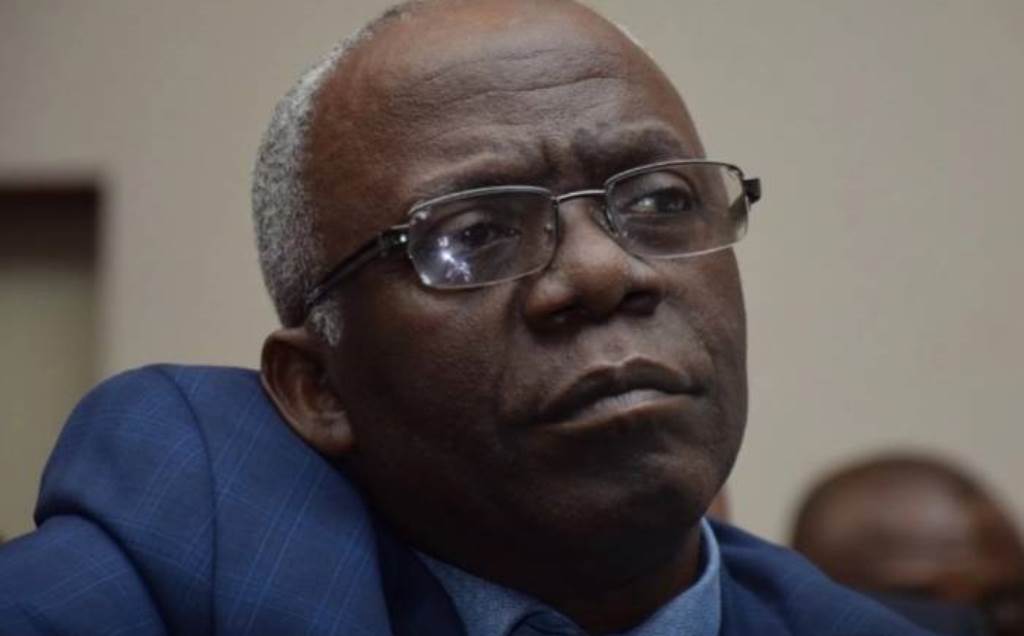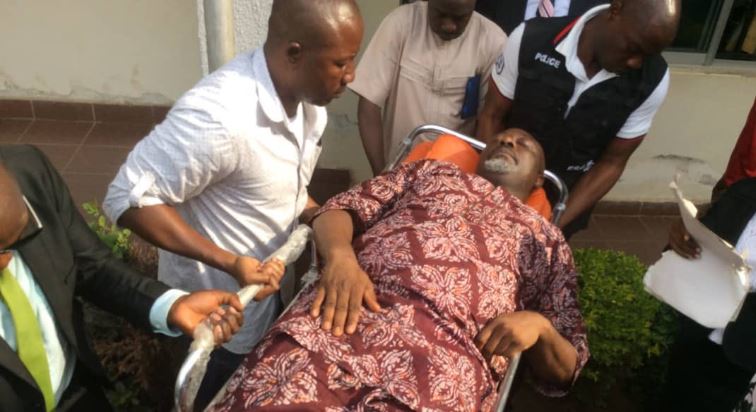Nigerian human rights lawyer, Femi Falana, has called on President Muhammadu Buhari and other leaders of the member states of the Economic Community of West African States (ECOWAS) to “comply with judgments and orders of municipal courts and regional tribunals in the interest of public accountability and political stability.”
The call was made by the lawyer on Wednesday at the ongoing “ECOWAS Consultative Meeting on Access to Justice and Respect for the Rule of Law” in Accra, Ghana. Mr. Falana traced “the lack of respect for court orders to prolonged years of military rule and the belief of African leaders that they are as powerful as the emperors and kings who ruled many communities in Africa before colonialism.”
According to Mr Falana, “The intervention of the President is a welcome development in view of the growing culture of impunity in Nigeria. But with respect to the President, it is not sufficient to recognise the court as a civilized forum for the amicable resolution of disputes in a democratic society. The aggrieved litigants require a firm assurance that the party leadership will not follow the bad example of the federal government by treating the judgments and orders of the court with contempt.”
Mr Falana said, “Having now embraced the rule of law, President Buhari ought to direct the State Security Service to release Sheik Ibraheem Elzakzaky and his wife from custody in line with the orders of Federal High Court of December 2, 2016. In the same vein, the orders of the Nigerian courts and the ECOWAS Court for the release of Col Sambo Dasuki (rtd) on bail pending trial should be complied with without any further delay.”
Mr Falana’s paper read in part: “Other high-profile judgments that President Buhari must obey without further delay include at least four judgments obtained by Socio-Economic Rights and Accountability Project (SERAP). The first is the judgment by Justice Hadiza Rabiu Shagari ordering the government to tell Nigerians about the stolen asset it allegedly recovered, with details of the amounts recovered.”
“The second judgment, by Justice Mohammed Idris, ordered the government to publish details on the spending of stolen funds recovered by successive governments since the return of democracy in 1999, while the third judgment, also by Justice Idris, ordered President Buhari to act on reports of investigations into allegations of padding and stealing of some N481 billion from the 2016 budget by some principal officers of the National Assembly, and to ensure prosecution of indicted lawmakers.”
“The fourth judgement by the ECOWAS Court of Justice in Abuja also obtained by SERAP ordered the Nigerian authorities to provide free and quality education to all Nigerian children without discrimination.”
“Nigeria has a duty to show leadership by example in the region since President Mohammadu Buhari is the current Chairman of the Authority of Heads of State and Governments of the ECOWAS. Such leadership has just been demonstrated by the Nigerian leader who has been reported to have distanced himself from the decision of the ruling party in Nigeria, the All Progressive Congress (APC) to expel its aggrieved members who sued the party in court over their grievances against the outcome of the recently concluded primaries of the party.”
“President Buhari should equally show leadership in the region by ensuring that all judgments of the ECOWAS Court against Nigeria are fully and unconditionally obeyed.”
“The hostile disposition of African states to courts is essentially the same. African governments including Nigeria are yet to move away from the era of military and apartheid regimes when martial law was the order of the day. The rule of law is substituted for the rule of rulers. Not only are orders of courts disregarded, judges who rule against governments are harassed by security forces. The same attitude has been extended to regional and international courts.”
“Even though majority of African States have ratified the Rome Statute, the African Union (AU) recently attempted to pull Africa out of the International Criminal Court (ICC) in order to prevent the Court from holding leaders accountable for gross human rights abuse, aggression, crimes against humanity and genocidal acts. The ICC has been accused of targeting African leaders notwithstanding that most cases of crimes against humanity were referred to the Prosecutor of the ICC by the governments of some African States.”
“Although the AU has come up with the Malabo Declaration aimed at clothing the African Court on Human and Peoples’ Rights with criminal jurisdiction not a single member state has ratified the Declaration. African leaders are not prepared to respect human rights under the rule of law as only 9 out of the 54-member states of the African Union have made the Declaration accepting the competence of the African Court”.
“The African people should not be deceived by the attempt of the AU to cover up the grave crimes against humanity and gross violations of the human rights committed by some African leaders. Nigeria and other African governments should emulate the governments of Benin, Cote D’ivoire, Ghana, Mali and The Gambia that have empowered their citizens to access the African Court on Human and Peoples’ Rights sitting in Arusha, Tanzania.”
“Notwithstanding the commitment of the member states of the ECOWAS to fight impunity by protecting human rights under the rule of law, compliance with decisions of the court by some of the member states has not been encouraging. The Governments of Nigeria, Ghana and Sierra Leone must without further delay comply with the judgments of the ECOWAS court and their domestic courts.”
“The Nigerian government should emulate the government of The Gambia that has promoted accountability in all its ramifications. Apart from paying the damages awarded by the ECOWAS Court to two victims of human rights abuse, the government of The Gambia has returned to the ICC and instituted a Truth, Reconciliation and Reparation Commission to inquire into the gross human rights abuse that characterized the Yayah Jameh regime.”




